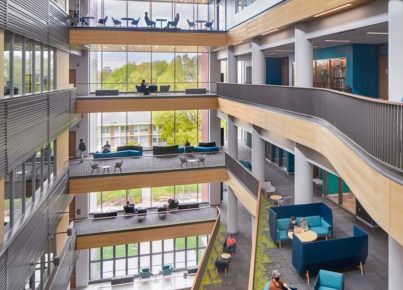The world of work is undergoing a significant transformation, driven by technological advancements, shifting demographics, and evolving industry needs. As a result, the labor market is experiencing a seismic shift, with new skills and competencies emerging as essential for success. In response, higher education institutions are adapting to meet the changing needs of the labor market, ensuring that graduates are equipped with the skills and knowledge required to thrive in this new landscape.
One key response is the integration of emerging technologies into curricula. With automation and artificial intelligence (AI) transforming industries, higher ed institutions are incorporating courses on AI, data science, and cybersecurity to prepare students for the jobs of the future. For instance, universities are offering degrees in AI engineering, data analytics, and digital marketing to address the growing demand for skilled professionals in these areas.
Another response is the emphasis on soft skills, such as communication, collaboration, and problem-solving. As automation replaces routine tasks, employers are seeking graduates with strong interpersonal and critical thinking skills. Higher ed institutions are incorporating experiential learning, project-based learning, and internships to help students develop these essential skills.
Furthermore, higher ed institutions are fostering partnerships with industry leaders to ensure that curricula remain relevant and responsive to labor market needs. These partnerships provide opportunities for students to engage in work-based learning, gain practical experience, and develop industry-specific skills. For example, universities are collaborating with tech companies to develop programs in cloud computing, blockchain, and the Internet of Things (IoT).
Finally, higher ed institutions are recognizing the importance of lifelong learning and upskilling. With the half-life of skills decreasing, graduates need to be prepared to continuously update their skills and knowledge to remain relevant in the labor market. Institutions are offering continuing education programs, online courses, and certification programs to support workers in their ongoing professional development.
In conclusion, higher education institutions are responding to the changing needs of the labor market by integrating emerging technologies, emphasizing soft skills, fostering industry partnerships, and promoting lifelong learning. By doing so, they are ensuring that graduates are equipped with the skills and knowledge required to succeed in an increasingly complex and dynamic work environment.





